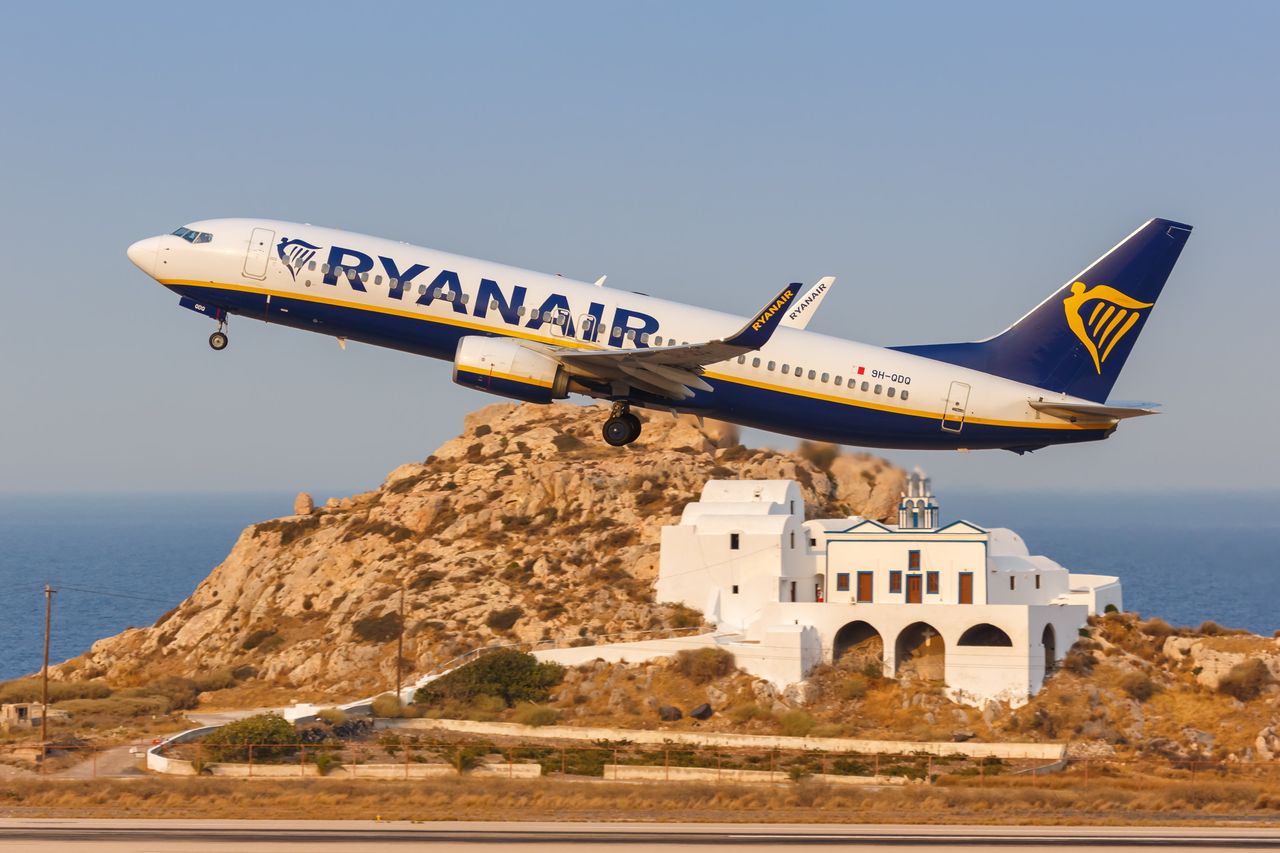Aşırı Turizm ve İklim Değişikliğinin Etkisi
Yunanistan'ın turizm görünümü, aşırı turizm ve iklim kaynaklı zorluklar gibi sorunlar nedeniyle önemli dönüşümler geçiriyor. Seyahat edenlerin ilgi alanlarındaki eğilimler değişiyor ve özellikle yaz aylarında yerel ekonomilerin turist ziyaretlerine nasıl bağımlı olduğunun yeniden değerlendirilmesine yol açıyor.
Popüler Adalardaki Yükselen Trendler
Santorini gibi geleneksel olarak kalabalık yerlerde ziyaretçi sayıları azalırken, daha az bilinen adalar artan bir ziyaretçi akını yaşıyor. Bu dinamik, yerel yönetimlerin turizmi daha dikkatli yönetmesine yol açtı; tıpkı yüksek riskli bir sirkte dönen tabakları dengelemeye benziyor.
Yunanistan'ın ekonomik çevrelerinde etkili bir figür olan Profesör Dimitri Vayanos, bazı adaların artık daha ünlü emsalleriyle aynı hataları yaptığını vurguluyor. Aşırı yapılaşmanın, Yunanistan'ın turizm cazibesinin temelini oluşturan otantik çekiciliklerini ve tarımını tehdit ettiği konusunda uyarıyor. Çevresel kaynaklar, özellikle su kaynakları azalırken, genellikle havuzları da içeren lüks konaklama yerleri inşa etmenin sonuçları durumu daha da kötüleştiriyor.
Vayanos, büyüme potansiyelinin henüz gelişmemiş alanlarda var olduğunu savunuyor, ancak Yunanistan'ın turizme yönelik tehlikeli yaklaşımı konusunda endişelerini dile getiriyor—sorunların çözüldüğü kadar hızlı bir şekilde ortaya çıktığı sürekli bir “köstebek vurma” oyunu.
Seyahat Alışkanlıklarındaki Değişiklikler
Feribot seferleri, seyahat tercihlerinde belirgin değişiklikler olduğunu bildiriyor ve veriler Santorini'ye olan klasik rotalara olan ilgide gözle görülür bir düşüş olduğunu gösteriyor. Yeni trendler, İos, Milos ve Mikonos gibi alternatifler arasında ada atlamada bir artış gösteriyor. Raporlar ayrıca Amerikalı gezginlerden Santorini'ye yapılan feribot rezervasyonlarında 'lik şaşırtıcı bir düşüş olduğunu vurguluyor.
- Aegina ve Poros gibi yükselen destinasyonlar, dört katından fazla artan rezervasyonlarla ziyaretçi sayısında artış gördü.
- Turistler de alışılmışın dışındaki yerleri arıyor; Lefkada, Sougia, Fournoi ve Kastellorizo özellikle Lefkada'nın önceki yıllara kıyasla feribot rezervasyonlarında %1.167'lik artışı olmak üzere 0'ün üzerinde artış bildirdi.
Yunanistan Ulusal Turizm Örgütü bu değişimi olumlu karşılıyor ve bunun ülke genelinde turizmi çeşitlendirme stratejisinin bir parçası olduğunu belirtiyor. Birleşik Krallık ve İrlanda ulusal turizm direktörü Eleni Skarveli, özellikle Birleşik Krallık pazarından gelen ziyaretçi sayısında genel bir artış olduğunu ve Yunanistan'ın önde gelen küresel bir destinasyon olarak konumunu güçlendirdiğini doğruluyor.
Popüler Adalardaki Gerginlik
Turist akını yerel ekonomilere olumlu katkı sağlasa da zorluklar devam ediyor. Örneğin Zante, yakın zamanda altı milyon geceleme sayısıyla yerel altyapıyı tehdit eden Avrupa'nın en kalabalık tatil beldesi olarak öne çıktı. Yerel halk, yolların ve kanalizasyon sistemlerinin aşırı ziyaretçi yükü altında nasıl çöktüğünü anlatıyor.
Zante'de bir bar sahibi olan Bluebell Tuck, yerel topluluğun turistleri memnuniyetle karşıladığını ve sektörün ekonomik hayatta kalma için gerekliliğini kabul ettiğini belirtiyor. Ancak, her şey dahil tatil köylerinin yerel işletmeler arasında daha az para dağıtmasından kaynaklanan ortaya çıkan sorunlara işaret ederek, uzun vadeli sürdürülebilirlik konusunda endişelerini dile getiriyor.
Tuck, yerel yatırımlar sayesinde Zante'nin geleceğine güvense de, özellikle atık yönetimi ve diğer kritik alanlarda hükümet desteğinin yetersizliğine dikkat çekiyor. Su kıtlığı giderek artan bir endişe olmaya devam ederken, birçok işletme operasyonlarını sürdürmek için su satın almaya bağımlı hale geliyor; bu eğilim, kesintilerin bildirildiği yakındaki Lefkada'da da yakından takip ediliyor.
İklim Kırılganlıkları
Son yazlar, Yunanistan'ın cazibesinin ne kadar kırılgan olduğunu vurguladı; sıcak hava dalgaları Akropolis gibi turistik yerlerin faaliyetlerine ara vermesine neden oldu. Aşırı sıcaklık rekorları ülke genelinde önemli sıkıntılara yol açarak kaynakların zorlanmasına ve özellikle Ağustos ayında orman yangınlarının artmasına neden oldu.
Doğal zorluklar ışığında, turizm sektörünün daha dirençli stratejiler benimsemesi giderek daha acil bir hal alıyor. Yunanistan turizm bakanlığı, yaz aylarındaki aşırı kalabalığın önüne geçmek için ziyaretçileri ilkbahar ve sonbahar aylarında sezon dışı dönemleri tercih etmeye teşvik ederek “iklime dayanıklı turizmi” destekliyor.
Yunanistan Ulusal Turizm Örgütü bu mesajları güçlendirirken, kendine özgü sosyo-ekonomik manzaranın üstesinden gelmek için uyumlu bir strateji olmaksızın etkinlikleri konusunda şüpheler devam ediyor. Yeniden değerlendirme yapılmaması halinde Yunanistan'ın, kendine özgü değerlerini korumadan güneşe çok yakın uçarak İkarus'un hazin düşüşünü tekrarlayabileceği korkusu sürüyor.
Yunanistan'da Turizmin Tarihsel Bağlamı
Yunanistan'da turizmin evrimi, hem adaları hem de anakara bölgelerini kapsayan zengin kültürel dokusu ve coğrafi çeşitliliğinde derinden kök salmıştır. Kitlesel turizmdeki artış, artan hareketlilik, toplu taşıma iyileştirmeleri ve uluslararası ilgiyle desteklenen 20. yüzyılın ortalarındaki değişikliklere kadar izlenebilir.
1950'lerde ve sonrasında, jet çağı havalanırken, Akdeniz'deki destinasyonlar, uygun fiyatlılık ve doğal güzelliklerin etkisiyle eşi benzeri görülmemiş bir popülerlik yaşamaya başladı.
- Yunanistan'ın pitoresk kıyı şeridi ve geniş ada ağı, yelken tatilleri ve maceraperest keşifler için idealdir.
- Turizm ekonomisi, GSYİH'nin yaklaşık %8'ini oluşturarak hayati öneme sahiptir ve sürdürülebilir seyahat gelişiminin önemini vurgulamaktadır.
Sonuç
Yunan turizmi değişim rüzgarlarıyla karşı karşıyayken, uyum yeteneğinin çok önemli olacağı aşikar. Aşırı turizm ve çevresel kaygıları ele alırken, daha az keşfedilmiş destinasyonlara olan ilginin kayması, gezgin tercihlerinde daha geniş bir geçişi yansıtıyor. Yunanistan'ın en iyi turistik yer olarak ikonik statüsünü korumak için sürdürülebilir uygulamaları benimsemek şart. Yelken ve tekne kiralama gibi denizcilik seçeneklerini keşfetmek, yerel ekonomileri desteklerken gezginlere eşsiz deneyimler sunabilir. Yunanistan'ın muhteşem sularına dalmak isteyenler için, GetBoat.com yelkenli tekneler ve yatlar kiralamak için geniş bir pazar yeri sunarak çeşitli tercih ve bütçelere hitap etmektedir.

 Navigating Changes in Greece’s Summer Tourism Landscape">
Navigating Changes in Greece’s Summer Tourism Landscape">
